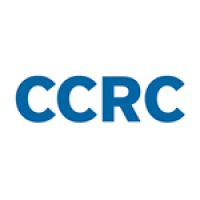By Melissa Herman and Hoori Santikian Kalamkarian
First-generation, or first-gen, students now comprise one third of all college students, yet they are much less likely than their peers to earn a degree. Some research suggests that first-gen students are less likely to access college support services—such as academic advising, career counseling, and tutoring—even though these services can be crucial to persisting in higher education.
Students’ personal networks might have an important role to play in helping them access and benefit from support services. However, there is much we do not know about the composition and characteristics of first-gen students’ personal networks and the mechanisms by which these networks influence students’ use of college services and their academic outcomes. What we do know is that colleges’ typical ways of communicating with students do not always work well for first-gen students.
To improve services for first-gen students, a new CCRC study is exploring the relationships these students have both on and off campus, how those relationships support their college journeys, and how those relationships influence what college services and supports they do and do not access. The study will help colleges strengthen existing services and communication efforts, develop new interventions to support first-gen students, and identify avenues for future research. We’re partnering with two California Community College campuses and two California State University campuses whose leaders are eager to learn how to improve services for students—including orientation, first-year experience courses, and financial, academic, and career counseling.
This study brings together three strands of research: social network analysis, student surveys, and interviews with faculty, staff, and students. This will enable us to explore the interplay between first-gen identity and experiences and the ways students make use of their personal networks to gain support during their educational journeys.
For the survey, we adapted questions from the General Social Survey (GSS), which has been used for more than 50 years to collect data on American society. We interviewed students to seek their input on the clearest wording of potential survey questions and tested out versions of the question “To whom have you turned to for advice or information about XX?” to get the most relevant and richest responses from students. The adaptation of these questions to the context of higher education could be useful for researchers studying college persistence and the influence of networks.
We have completed the first wave of survey and interview data collection and are learning a lot about the complexity of both first-gen identity and how first-gen students’ personal networks influence how they get information and seek help. Sometimes the term “first-gen” is used to refer to students whose parents have no higher education experience at all; other times it’s used for those whose parents did not earn a college degree. Sometimes students use it interchangeably with low-income or other statuses. Sometimes students whose parents did not attend college get support and advice from siblings and/or other members of their extended family. For the study, we decided to begin with the most inclusive definition of first-generation college student, used by the federal government, which is that neither parent earned a four-year college degree. Students in the study also chose from a list of possible definitions that might apply most accurately to their own family.
Our initial interviews with students are confirming how important the first-gen identity is for many of them. Their gratitude for being able to share their stories and influence the way that colleges serve first-gen students highlights the necessity and value of this research. Students are telling us that this research is important and that we need to listen to them to improve the way colleges support first-gen students. We believe that our findings will be useful to colleges as they evaluate first-gen students’ needs and the resources the colleges provide them and consider what strategies are most effective for enabling students to take advantage of valuable services.





